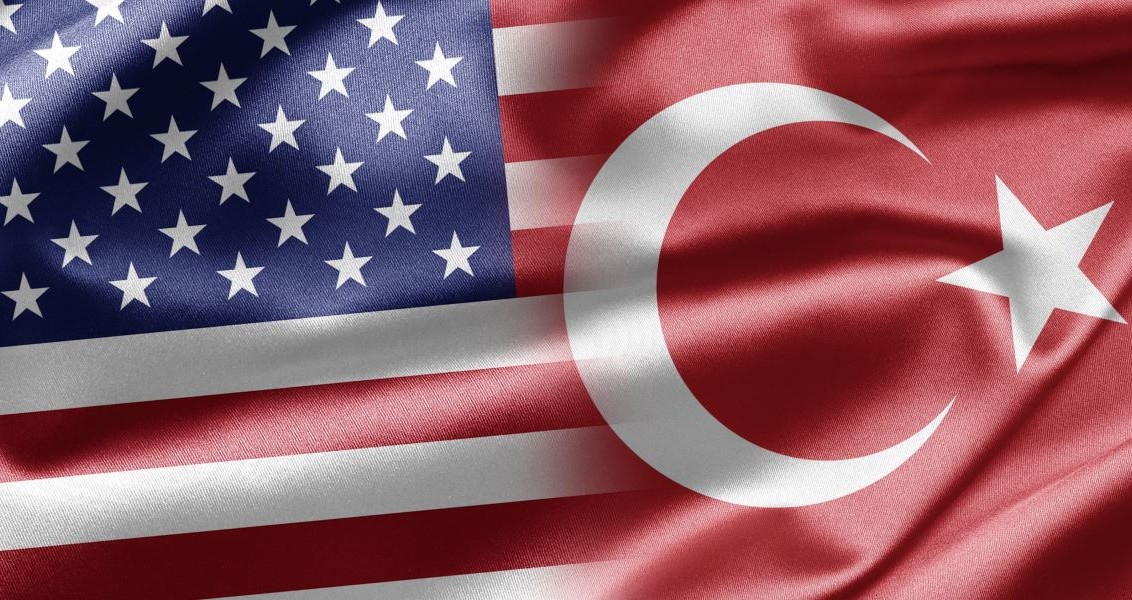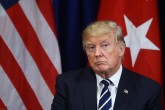The visa crisis between Turkey and America has yet again raised the question of what is in store for the alliance’s future. Since the beginning of the crisis almost a month ago, there have been different answers given to this question. Last Thursday at a panel organized by the Foundation of Political, Economic and Social Research (SETA) in Washington, D.C., a solution to this problem was discussed by panelists who provided recognition and analysis of the tension between the two countries and also presented potential ways to ease this tension.
Everybody today agrees that bilateral relations are going through one of their most difficult chokepoints. Multiple issues must be resolved to have a stable and forward-looking partnership. First, the U.S.’s assessment of its alliance system and clarification of expectations from allies is necessary to resolve many problems that stem from confusion on the part of the allies. The U.S. has problems or tensions with most of its “traditional allies” because of skepticism among these partners in regards to the commitments of the U.S. This situation creates too many question marks about the future of the relations of these countries with the U.S. Turkey has not been an exception to this situation.
Question marks about U.S. policy in regards to the Middle East have been irritants in the relationship for a while. Especially in regards to Syria, this lack of clarity and indecisiveness confused Turkish foreign policy makers. The rhetoric increased expectations among U.S. allies; however, these expectations were never met or fulfilled. It is understandable due to the evolution of the international system and increasing preference on the part of the U.S. to follow a more modest foreign and security policy. However, these changes and intentions need to be signaled to allies in advance, and if necessary, the expectation of the allies about burden sharing needs to be clarified. This will clear one of the most significant hurdles in bilateral relations.
Second of course, two outstanding issues in Turkish-American relations for the last few years have been the PKK’s armed Syrian affiliate, the People’s Protection Units (YPG) and the Fetullah Gülen issue. Both issues generated a very significant degree of mistrust. That the YPG is the PKK’s armed wing, a terrorist organization recognized by both the U.S. and Turkey, should not become an issue for the Turkish side. Regardless of the explanation or excuses by the U.S. administration, that the U.S. is currently arming a branch of a terrorist group that targets Turkey results in a serious source of mistrust between two NATO allies. Similarly, the fact that, despite the July 15 coup attempt, the U.S. administration did not meet the expectations of Turkey in regards to Gülen is a serious problem for bilateral ties.
For Turkey, the July 15 coup attempt was a major trauma that needs to be recognized and appreciated by an ally. Bringing the perpetrators of the attack to justice is considered a natural expectation. In both issue areas, prolongation of the tension will generate a major dent in relations that will shape the collective memory of bilateral relations in the public eye. Moreover, the mistrust that is further emerging among different institutions in the government can be contained only through these steps.
Third, the public in both countries play an important role in bilateral relations. In Turkey, this is prevalent among the ordinary public. The negative attitude towards U.S. foreign policy rose rapidly with the U.S. invasion of Iraq and later a similar wave of feeling among the public developed due to the inaction of the U.S. administration during the Syria crisis. However, with U.S. assistance to the YPG and the July 15 coup attempt, these feelings have risen to a significant level. Considering the presence of a foreign policy attentive public in Turkey, the continuation of such feelings towards the U.S. will considerably limit the maneuverability of foreign policy makers in Turkey in handling foreign affairs with the U.S.
This issue needs to be dealt with to fix bilateral relations between the two countries. Major public diplomacy accidents need to be prevented, and steps must be taken to improve people-to-people relations, which explain a lot with regard to why the visa decision of the U.S. Embassy was very counterproductive. Additionally of course, to safeguard the relationship, relations need to be diversified to include stronger economic relations between the two countries.
Despite these serious problems, it was important that the panel tried to offer solutions to resolve tensions between the two countries. Military and strategic cooperation between the two countries continue today as both countries have decades-long NATO membership and have been partnering in the fight against Daesh. Of course, the recent rapprochement between the two countries about northern Iraq also provides an important dimension to the ties. However, in the aforementioned cases, the U.S. needs to make serious efforts to make Turkish policy makers believe in the potential and yes, the reliability of U.S. commitments on alliances.
[Daily Sabah, 6 November 2017]
In this article
- Opinion
- 2017
- Counter-Terrorism
- DAESH
- Daily Sabah
- Fethullah Gülen
- Fight against DAESH
- Fight Against Terror
- Iraq
- Kurdistan Workers' Party Terrorist Organization (PKK)
- Middle East
- NATO
- NATO Membership
- Northern Iraq
- People's Protection Units (YPG)
- PKK - YPG - SDF - PYD - YPJ - SDG - HBDH - HPG - KCK - PJAK - TAK - YBŞ
- SETA
- Syria
- Syrian Civil War
- Syrian Conflict
- Syrian Crisis
- Terror
- Turkish Foreign Policy
- Turkish-American Relations
- Türkiye-US Relations
- Türkiye's Foreign Policy
- United States (US)
- US Foreign Policy
- US Invasion
- US Invasion of Iraq



